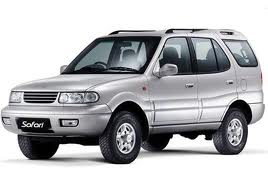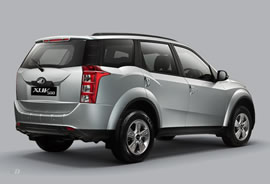Difference between SUV, MUV and XUV
Key Difference: SUV stands for a sports utility vehicle that is used to denote any vehicle that looks like a station wagon. MUV is a type of vehicle designed like in the shape of a van. XUV stands for Mahindra XUV 500, which is an SUV produced by the Indian automobile company named as Mahindra and Mahindra.
The segmentation of the vehicles under various categories of vehicles aims at forming different groups of vehicles. Each group contains vehicles with similar kind of specifications. The glossary of automobiles has adopted SUV, MUV, and XUV as the categories defining vehicles with some specified features. To understand the difference between them, we should know what category offers what kind of features.
Also see: Difference between Hyundai i10 Era, Magna, Sportz and Asta

SUV stands for a sports utility vehicle that is used to denote any vehicle that looks like a station wagon. It means that is has a mini truck kind of platform. Few vehicles from this segment are Mahindra Scorpio, Toyota Fortuner, Maruti Grand Vitara, Tata Safari, Ford Endeavour, and Honda CRV. They are known for performing some off-road duties. These vehicles are apt for driving rough textured roads. The mid-size and full-size SUVs have generally three rows of seats and the cargo area is placed behind the last row of seats. It is preferred for people looking out for features like a spacious vehicle with a bit off-road capability. SUV’s can be easily spotted by their appearances and looks, resembling a big station wagon.
Also see: Difference between Hyundai i20 Era, Magna, Sportz and Asta
.jpg)
MUV stands for a multi-utility vehicle. It is used for various purposes and the cars of this segment are known for their duty-ness, durability, stability, looks, reliability, etc. Toyota Innova, Mahindra Xylo, Tata Sumo, and Mahindra Bolero are some of the vehicles falling in the category of MUVs. It is a type of vehicle designed like the shape of a van. Multi Utility Vehicle or cars have bigger chassis dimensions, more seating capacity and most of the models are designed with folded rear seats, and the area that is left can be used for some extra luggage space. A multi-utility car can accommodate many passengers and also carry more luggage at a time.
Also see: Difference Between Hybrid Cars and Electric Cars
 The XUV term is associated with the Mahindra XUV 500; it is an SUV produced by an Indian automobile company known as Mahindra and Mahindra. As it is an SUV, it certainly contains all the features of an SUV. This vehicle was designed and developed at the company’s build center present in Nashik and Chennai, whereas it is manufactured in Mahindra’s Chakan and Nashik plant in India. XUV 500 has the engine known as- mHawk140, Direct injection diesel engine 5th generation Variable Geometry Turbo. The max gross power of the engine is 140 Bhp (103kW) @ 3750 rpm and Max gross Torque is 330 Nm @1600-2800rpm. It comes with features like a fully-loaded GPS navigation system, a Driver Information System, Cruise Control, Intellipark Reverse Assist, and Smart Rain and Light sensors. The XUV500 is the first monocoque SUV developed by Mahindra and Mahindra.
The XUV term is associated with the Mahindra XUV 500; it is an SUV produced by an Indian automobile company known as Mahindra and Mahindra. As it is an SUV, it certainly contains all the features of an SUV. This vehicle was designed and developed at the company’s build center present in Nashik and Chennai, whereas it is manufactured in Mahindra’s Chakan and Nashik plant in India. XUV 500 has the engine known as- mHawk140, Direct injection diesel engine 5th generation Variable Geometry Turbo. The max gross power of the engine is 140 Bhp (103kW) @ 3750 rpm and Max gross Torque is 330 Nm @1600-2800rpm. It comes with features like a fully-loaded GPS navigation system, a Driver Information System, Cruise Control, Intellipark Reverse Assist, and Smart Rain and Light sensors. The XUV500 is the first monocoque SUV developed by Mahindra and Mahindra.
Mainly, we can differentiate them on the basis of their basic definition as: a type of vehicle that is similar in shape to a van, and is designed for personal usage is categorized under MUV. SUV includes vehicles containing the towing capacity of a pickup truck and the space of station wagon. MUVs target customers that are looking for a spacious vehicle, which can be used for both passengers and luggage though no like economy and compact cars (See the difference between economy and compact cars) whereas SUVs are preferred by people who are looking for vehicles that can be used in all road conditions like uneven roads and hilly areas.
Image Courtesy: cars.mitula.in, tatamotors.com, riveinside.com









Comments
Good to know
Vikash kumar
Fri, 03/07/2014 - 17:06
Nice facts... :D
Vikash kumar
Fri, 03/07/2014 - 17:05
Thanks for your service. Keep it up
Kumaresan
Wed, 02/12/2014 - 16:38
Pages
Add new comment